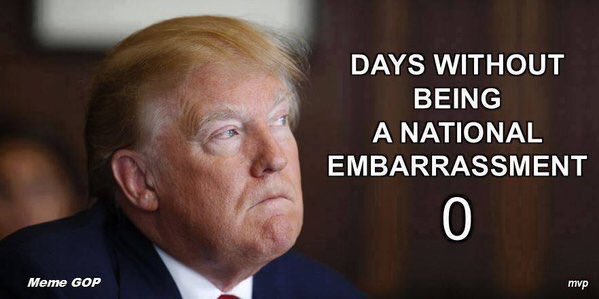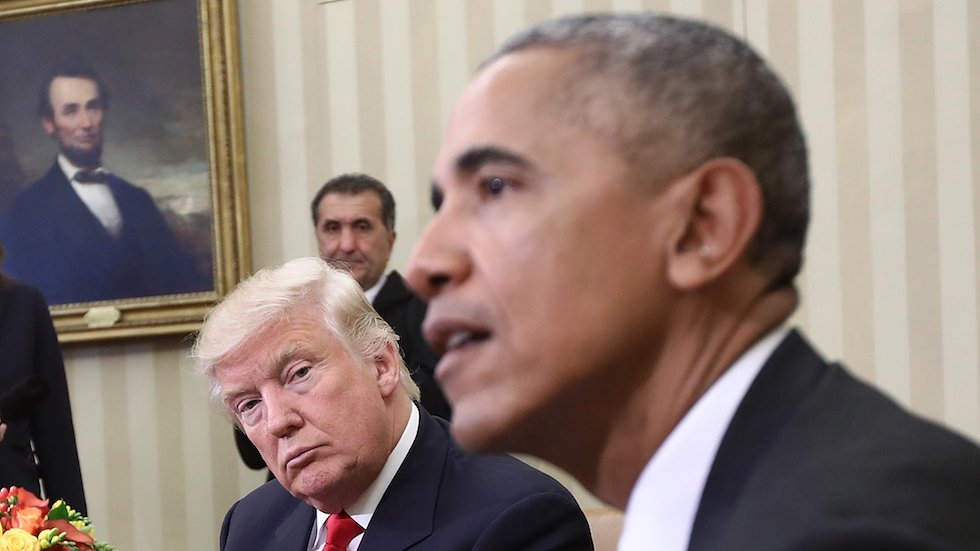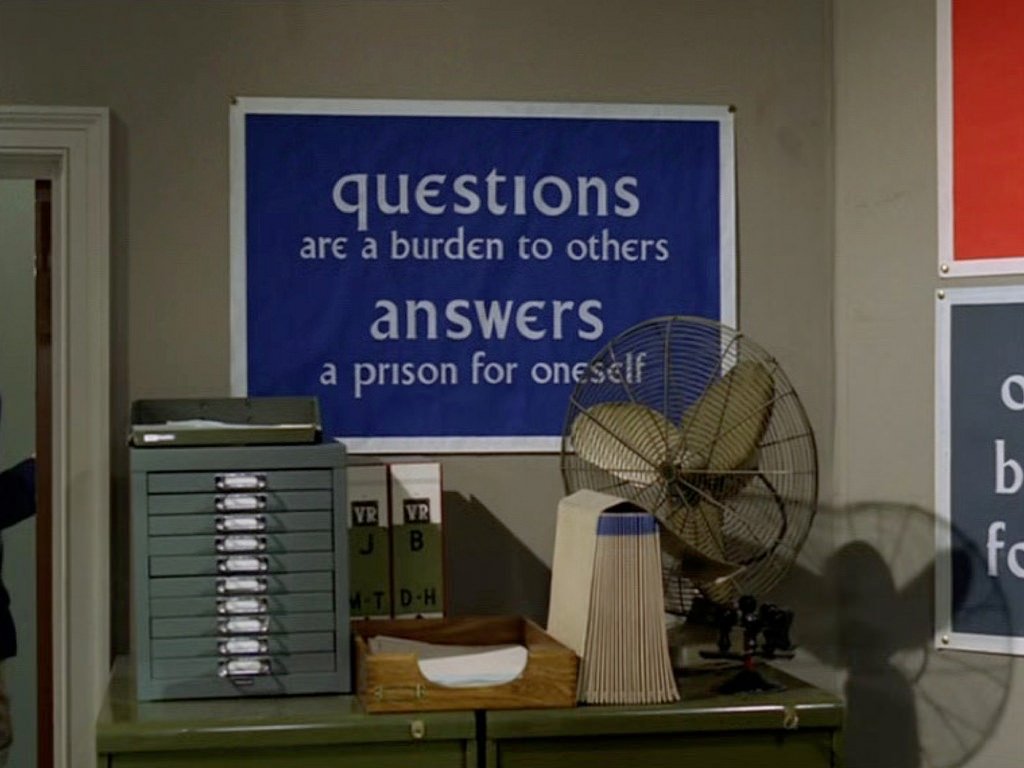A long standing, large, and permanent transition has taken place.
The panic of 2007-8 showed how the system can morph, but in a longer time horizon than we usually think of."
Gary Gordon @YaleSOM
- too little accrual in good times
- too much in bad times
- procyclical effects
Pecipitated shift to expected loan reserve model.
This front-loads credit loss. Direct hit to income. Likely procyclical.
Ryan @nyuniversity
Ryan @nyuniversity
- Diminishing returns to regulation with adequately self insurance.
- Some aspects not cost effective.
- Considerable scope remains to strengthen financial system.
Kim Schoenholtz @nyuniversity
Kim Schoenholtz
+ cc @colinmclean
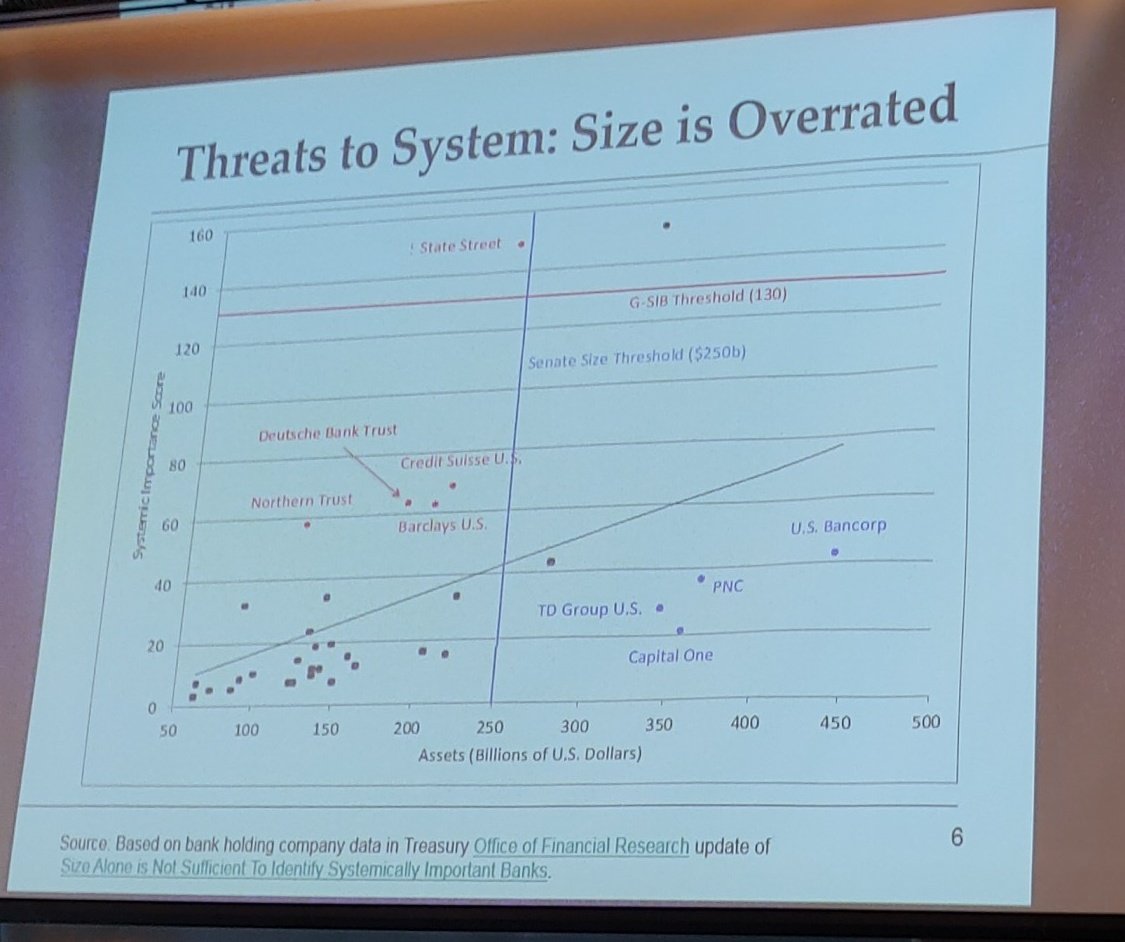
Recent actions overlook a number of opportunities to improve oversight.
Ex:
- UK has 3 regulators
- US has 100+
Operational risk has increased through shift to central clearing. Disclosure needed. And contingency plans.
Modified double trigger model from Foote @BostonFed
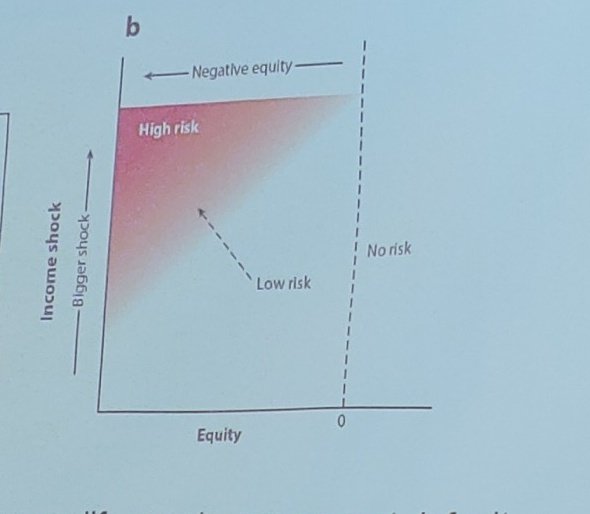
Chris Foote @BostonFed
"There was no unilateral shift of credit allocation towards marginal or sub-prime borrowers."
Antoinette Schoar @MIT
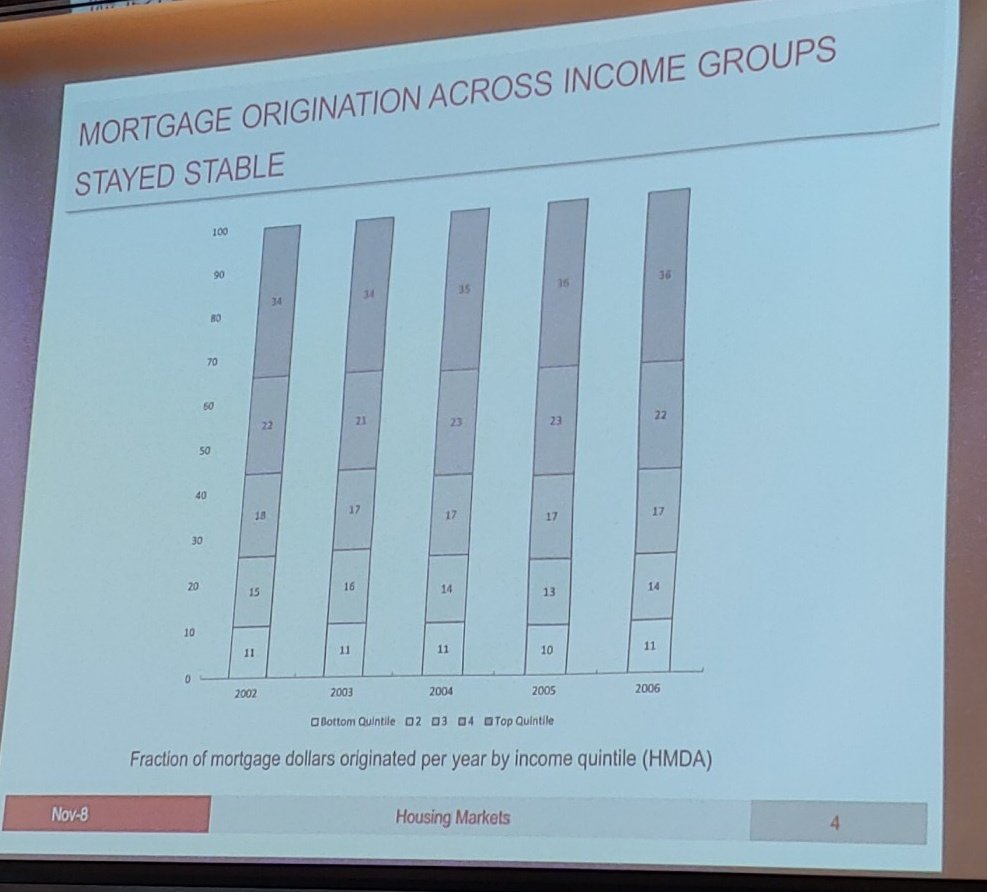
Schoar (cont) #FinancialCrisisReview enfuego.

Now Deborah Lucas on the consequences of bailouts.
"Economists don't spend a lot of time looking at the cost of government actions."
Misplaced faith in large institutions."
- Bob Armstrong, President and CEO of AIG a/o February 2010.
Wasn't just one. A sustainable capital structure needed to evolve through cooperation amid chaos. Hancock et al modeled a $13B "peace dividend" to bring parties to. The table.
Peter Hancock, former CEO of AIG.
- Do not data mine. No defaults before doesn't mean none coming.
- Correlation structures are not constant.
- There are cheaters out there.
- Tim Geithner
Geithner (cont)
You have to design a system that works even if oversight isn't prescient."
- Tim Geithner
But picture this. Andrew Lo asks what dealing with the crisis was like for him physically.
Three, then five second pause....
"It was dark, hard, time."




